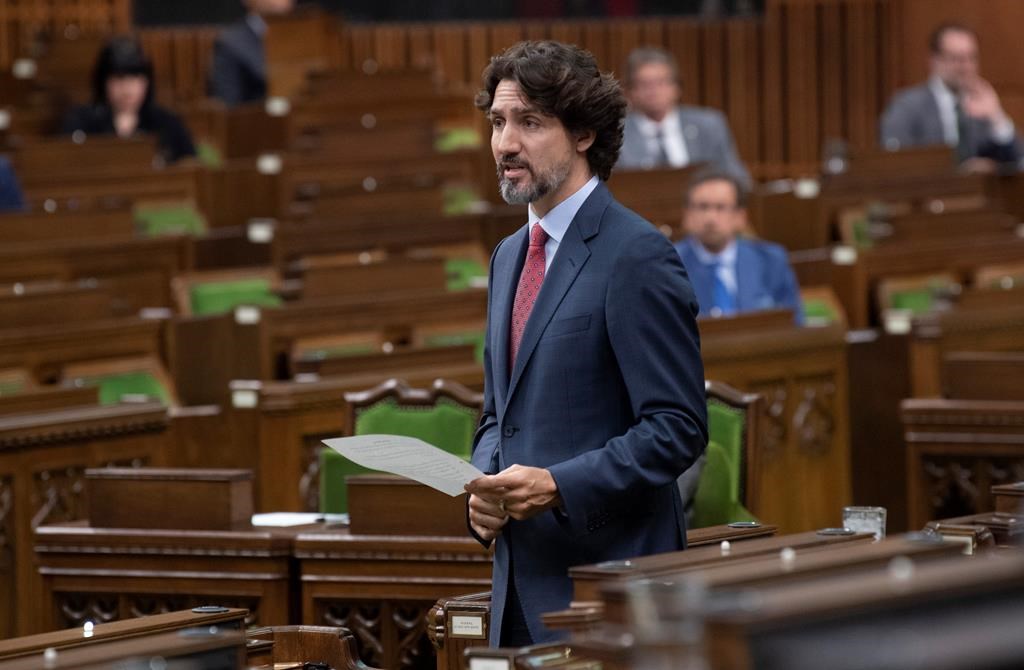While we are still clearly a long way from business-as-usual in our nation’s capital, we should be able to do a lot better than business-at-an-absolute-bare-minimum.

Rather than finding creative ways of allowing Parliament to function under the circumstances, the Liberals — aided and abetted by the NDP — have instead opted to suspend all regular House of Commons sittings until at least Sept. 21, thus keeping debate, scrutiny, and accountability severely limited.
READ MORE: Normal House of Commons sittings to be waived another four months amid coronavirus
Under this deal — in which the NDP voted alongside the Liberals in exchange for a vague promise of action on paid sick leave — there will be just four special House sittings over the summer. The parliamentary committee on the government’s COVID-19 response will continue to meet into June, but this committee lacks the full complement of powers — e.g. opposition days, private members’ bills, submitted written questions — that Parliament possesses, which makes it a poor replacement for House sittings.
It seems wrong that in a minority government, the opposition should be so sidelined and hobbled — even in a pandemic situation. Other governments, both across the country and abroad, have been able to conduct more regular business than Ottawa has. Yes, there is a need for a “hybrid” system — in-person sittings with reduced numbers of MPs combined with virtual debates involving larger numbers of MPs — but this “compromise” sacrifices far too much accountability. There is still a need to find a way for MPs to vote virtually and remotely, but this gives the government an excuse to avoid finding that solution.
Even Canada’s independent Parliamentary Budget Officer this week described the four hours allocated for the June 17 debate and vote on tens of billions of dollars in government spending as “unfortunate to say the least.” Unfortunate indeed, since there’s no obvious reason why that couldn’t have been extended longer.
There is much to question the government about, beyond the obvious inquiries about the $150 billion in emergency spending and the lack of a budget or even a fiscal update. There’s a long list of issues that deserve a much more fulsome debate that the government’s current plan allows for.
Given the disturbing reports on the state of long-term care in this country, is the government prepared to announce a public inquiry on the matter? Is it prepared to make changes to federal guidelines? To what extent is it prepared to assist provinces in fixing these problems?
There are also a number of issues pertaining to Canada’s relationship with China. What sort of retaliation is the government expecting from Beijing in response to the decision concerning Meng Wanzhou’s extradition? How is the government prepared to respond? What about Huawei itself and the pending decision on its involvement in building Canada’s 5G infrastructure? Furthermore, what are we prepared to do to stand up for Hong Kong’s autonomy in the face of China’s recent crackdown?
- Train goes up in flames while rolling through London, Ont. Here’s what we know
- Wrong remains sent to ‘exhausted’ Canadian family after death on Cuba vacation
- Liberals having ‘very good’ budget talks with NDP, says Freeland
- Peel police chief met Sri Lankan officer a court says ‘participated’ in torture
The list goes on and on, with important unanswered questions on everything from Canada-U.S. border issues to the government’s refusal to force airlines to offer refunds to frustrated passengers, to the very issue that the NDP got sucked in over: who will foot the bill for this national sick leave policy?
READ MORE: Trudeau pushing for 10 days of paid sick leave from provinces amid coronavirus
It’s especially frustrating since the prime minister is content to pontificate on these and other issues during his daily news conference, yet denies meaningful debate and discussion on them within the confines of Parliament.
Defenders of the government might argue that this limited debate is still better than nothing at all, but hopefully, Canadians reject that sort of cynicism. We can and should do better in finding a balance between public health and responsible government.
Rob Breakenridge is host of “Afternoons with Rob Breakenridge” on Global News Radio 770 Calgary and a commentator for Global News.












Comments